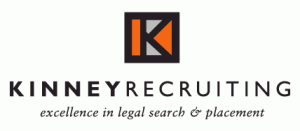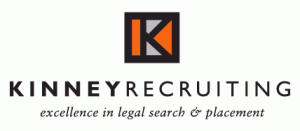Now that most people are quarantined at home with few diversions other than watching television and movies, many people have been talking about their quarantine watch list. Indeed, most of my friends have been discussing each of the series they have been binge-watching since the enactment of stay-at-home orders, and all of the somewhat strange and interesting TV shows and films that bring them joy during this rough time.
I myself have some weird tastes in television shows and movies, and I even still subscribe to Netflix DVDs so that I can get my hands on hard-to-find media that interests me. However, I hope readers will not find it too odd when I suggest that lawyers should watch The Paper Chase TV series in order to binge a good television show during the quarantine.
Most people within the legal profession are familiar with the classic 1973 film The Paper Chase. The movie stars the legendary John Houseman and involves the tribulations of a first-year law student as he handles his studies as well as a romance with the daughter (pre-Bionic Woman Lindsay Wagner) of his contracts professor. When I was in law school about a decade ago, people were still recommending that individuals watch The Paper Chase movie to get a sense about what law school was like and how they can succeed in classes. Of course, law school has changed a lot since the 1970s, and the research methods, teaching strategies, and other aspects of the movie do not really relate to the modern law school experience. However, the movie does encapsulate many of the difficulties that law students faced in the past and still encounter today.
I discovered during my second year of law school that The Paper Chase had been turned into a four-season television series during the 1970s and 1980s. I had never heard of a TV series involving law students before, so I decided to get my hands on the DVDs of the episodes. At first, I ordered the DVDs one at a time through Netflix DVDs, but I eventually heard that a hallmate of mine had seasons one and two on DVD. You see? At least one other person was interested in the series! In any case, I then churned through the first couple of seasons of the show pretty quickly, but seasons three and four were not available on DVD at that time. Fortunately, those seasons became available more recently, and I have since seen every episode of the series.
The Paper Chase is one of the most incredible television series I have ever watched. Probably the most unique aspect of the show is that even though it was filmed decades ago, it still mostly relates to the modern law school experience. For instance, the episode about on-campus recruiting is somewhat reminiscent of the environment during on-campus recruiting at many law schools across the country in the present day. In addition, the episodes about dorm life, politics among law review editors, and the stresses of exams are extremely accurate.
Of course, some of the book research that the students conduct in the television series has little bearing on the modern law school experience. In addition, episodes about the fights between law students and computer science geeks are more appropriate for media like Revenge of the Nerds rather than a true-life depiction of the law school experience. However, the series does capture the nuanced issues faced by all types of law students.
For instance, season three includes a middle-aged empty nester who attends law school later in life, which reminded me of many classmates I had in law school. In addition, the episodes about difficult decisions law students must make between clerking and taking a high-paying law firm job are also very real to many law students. In any case, no TV series or movie is going to be completely accurate about the subject matter it depicts, but The Paper Chase series does an amazing job detailing the trials and tribulations of law students.
This is the reason why pretty much every lawyer can enjoy and appreciate the series. Virtually every practicing attorney went to law school, and although there are different types of law schools, they all contain many common experiences: being cold-called in class, taking high-stress final examinations, jockeying for positions on law journals, competing for job offers, and a number of other struggles.
As a result, all lawyers can appreciate the situations of the series’ characters, since lawyers can definitely see themselves in the experiences depicted in the show. In addition, perhaps the older generation of lawyers would appreciate the series the most. The show is a reminder of how legal education was several decades ago, and we can appreciate all of the advancements that have been made more recently.
In the end, I highly recommend that lawyers check out The Paper Chase. Some may be immediately turned off by the fact that the television series is old, and some of the plot lines do not apply to more modern experiences. However, many lawyers can relate to the stories depicted in the show, and as a result, the series should definitely be on any lawyer’s quarantine watch list.
 Jordan Rothman is a partner of The Rothman Law Firm, a full-service New York and New Jersey law firm. He is also the founder of Student Debt Diaries, a website discussing how he paid off his student loans. You can reach Jordan through email at jordan@rothmanlawyer.com.
Jordan Rothman is a partner of The Rothman Law Firm, a full-service New York and New Jersey law firm. He is also the founder of Student Debt Diaries, a website discussing how he paid off his student loans. You can reach Jordan through email at jordan@rothmanlawyer.com.













 Kathryn Rubino is a Senior Editor at Above the Law, and host of
Kathryn Rubino is a Senior Editor at Above the Law, and host of 
 Jill Switzer has been an active member of the State Bar of California for over 40 years. She remembers practicing law in a kinder, gentler time. She’s had a diverse legal career, including stints as a deputy district attorney, a solo practice, and several senior in-house gigs. She now mediates full-time, which gives her the opportunity to see dinosaurs, millennials, and those in-between interact — it’s not always civil. You can reach her by email at
Jill Switzer has been an active member of the State Bar of California for over 40 years. She remembers practicing law in a kinder, gentler time. She’s had a diverse legal career, including stints as a deputy district attorney, a solo practice, and several senior in-house gigs. She now mediates full-time, which gives her the opportunity to see dinosaurs, millennials, and those in-between interact — it’s not always civil. You can reach her by email at 


